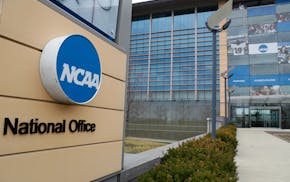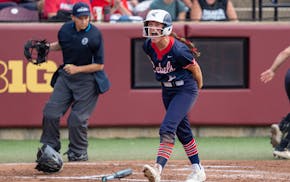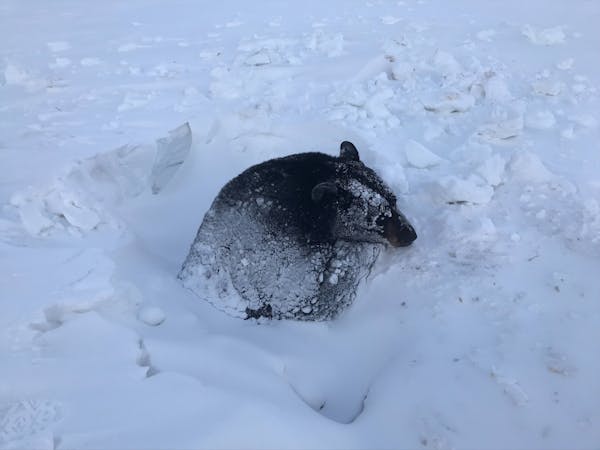Tired of waiting for the U.S. Forest Service to make good on an agreement to analyze commercial towboat service in the Boundary Waters Canoe Area Wilderness, a wilderness group has revived a lawsuit to slash usage of the motorboats.
The federal lawsuit potentially affects thousands of BWCA visitors a year and 18 specially permitted outfitters. The complaint was filed a week ago in U.S. District Court in the Twin Cities by Wilderness Watch, a national nonprofit that fights to keep natural areas wild.
Kevin Proescholdt, the Minnesota-based conservation director for the organization, said towboat traffic in the BWCA appears to have tripled since the early 1990s. The rise has continued, he said, even since Wilderness Watch first sued the Forest Service in 2015 for excessive commercial towboat use.
"They've just allowed it to continue to grow,'' Proescholdt said. "It'll drag on forever unless we sort of push them to act.''
Christine Kolinski, a spokeswoman for the Superior National Forest, said the agency doesn't comment on pending litigation. She said the latest commercial use report is scheduled for release in April.
"We continue to collect and analyze data,'' Kolinski said. At some point the analysis will stop and the Forest Service will work toward a change, she said.
At issue in the case are motor-assisted entries on a limited number of routes to dropoff points deep in the boundary waters. The small towboats — jon boats in most cases — carry canoes on racks elevated above seated passengers. The service is available on two rivers and 14 lakes. Prominent among those waters are Saganaga Lake, Seagull Lake, Lac La Croix, Crane Lake, Snowbank Lake, Clearwater Lake, South Farm Lake, Basswood Lake and the Moose Lake chain leading into Basswood, Birch, Knife and Ensign lakes.
The Moose chain, where BWCA visitors also are permitted to operate small motorboats on their own, is described in the lawsuit as "a motorboat freeway … with a ceaseless parade of commercial and private engine traffic.''
Proescholdt has said motorization unduly "shrinks'' the 1.1 million acre wilderness by allowing visitors to take shortcuts. According to the lawsuit, towboats "are like shuttle buses driving canoe-capable clients further afield.''
"Ironically, much of the towboat demand is induced by canoers' desire to reach distant areas where they can avoid the excessive motor traffic on the towboat-heavy lakes,'' the lawsuit said.
But outfitters say towboats assist in spreading visitors across the park, easing overcrowding in areas close to drive-up entry points and reducing human encounters — a goal of the Forest Service for BWCA visitors.
Willy Vosburgh, a Moose Lake resort owner and BWCA outfitter who has been operating towboats for 17 years, told the Star Tribune a year ago that campsites on the Moose chain would be overrun with paddlers if towboats stopped providing transport to more distant lakes, saving them five or more hours of paddling.
"I don't see how it could do anything but help,'' Vosburgh said of towboat rides.
Especially in 2020 and 2021, a pandemic-related surge of inexperienced campers led to resource damage at easy-to-reach campsites and portages, the Forest Service has said.
In addition, outfitters have said, towboats provide safety to travelers on routes with long crossings over big water. The outfitters also fear that distant entry points served by towboats would go unused without the ride service, adding to congestion elsewhere in the BWCA.
Congress grandfathered limited use of commercial towboats and private motorboats when it created the BWCA in 1964 as part of the Wilderness Act. In the late 1970s, refinements were made to further limit motorization.
According to the lawsuit by Wilderness Watch, those changes required the Forest Service to quantify the average level of motorboat use on exempted lakes and cap future motorboat use.
"This lawsuit addresses the Superior National Forest's long-term and utter failure to comply with its statutory wilderness protection mandates,'' the complaint says. Wilderness Watch first sued over the issue in 2015, ultimately agreeing to a settlement whereby the Forest Service would assess — and consequently correct — the commercial towboat problem within two years.
"It has been over five years, and the agency has yet to even fully satisfy the assessment task agreed to in the settlement,'' the complaint said. "In the meantime, the wilderness-degrading motorboat activity has only intensified.''
As part of the earlier settlement, the Forest Service assessed the need for a range of commercial services inside the BWCA and in the remainder of the Superior National Forest. The assessment was to determine whether commercial services are necessary, and if so, to what extent. The need for towboat services was listed as "moderate.''

Federal judge approves $2.8B settlement, paving way for US colleges to pay athletes millions

United South Central wins Class 1A softball title with overpowering pitching

St. Cloud Cathedral endures a tense start, defeats Hawley for Class 2A softball state title

Softball state tournament: Champlin Park (4A), Rocori (3A), St. Cloud Cathedral (2A), United South Central (1A) are champs

